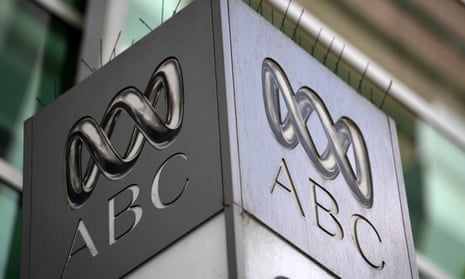
Parliament hears media in Asia and the Pacific are being courted by Beijing in an ‘unprecedented campaign’
Thu 22 Jun 2023 17.37 AEST
Last modified on Thu 22 Jun 2023 17.55 AESTClaire Gorman, the ABC’s head of international services, told the inquiry into supporting democracy in the region that China is spending at least $3bn a year on international media, compared with $11m for the ABC.
Extra funding due to roll out from July means the national broadcaster “stands ready” to do more to advance democracy, civil society and peace, she said.
“We do an enormous amount on that skeleton budget,” she said. “But we could do a lot more with a much higher level of funding. If we were to be funded at same per capita basis as the BBC World Service, the ABC’s funding would sit at about $270m a year.
“We know that the [People’s Republic of China’s] investment in international media activities sits at probably more than $3bn a year.”
Gorman said journalism was under threat across the region.
“There are those dynamics of the rise of autocracy, the undermining of democracy, threats to journalism, threats to independent media, threats to public interest media and the undermining of best-practice objective journalism,” she said.
The Australia Asia Pacific Media Initiative (Aapmi) said in its submission that China was taking control of media in the Pacific, had taken over Radio Australia’s shortwave frequencies, had more correspondents, more outlets and more control of local media.
Aapmi said media in Asia and the Pacific were “being courted by China in an unprecedented campaign described by respected academic researchers as no less than a plan for ‘global media dominance’”.
It
said there were a large number of Chinese state-controlled English
language services, memorandums of understanding with Pacific media
companies, an expanded network of Chinese correspondents, a Chinese
government visits programs for Pacific journalists, as well as
advertising and sponsored content in newspapers in the Pacific.
“Journalism
academics have expressed concern about the creeping influence of China
on media freedom,” Aapmi said, with “respected commentators seeing China
winning the information war in the Pacific”.
The University of Melbourne’s Centre for Advancing Journalism echoed many of Aapmi’s concerns and said successive governments had failed to recognise the importance of “soft diplomacy”.
“Challenges for Australia and the region included the rapid digitisation of media, eroding newsroom budgets, the contest of ideas between democratic nations and China, online misinformation, disinformation and extremist propaganda, and the global economic downturn,” it said.
“Some Pacific leaders have sought to leverage the tensions between China and Australia to their political advantage. This has been most obvious in attacks on foreign and domestic media seen as evidence of China’s growing influence in the region.”
The independent MP Zoe Daniel – a former ABC foreign correspondent – asked Gorman about the effects of “substantial cuts” to the ABC’s international efforts.
“We still have a reputation legacy … across the Indo-Pacific region,” Gorman said. “We’re still very much regarded as a key partner in the Pacific.”
She said with extra funding the ABC could expand its services in Indonesia, India, the Mekong, and other regions regarded as “high priority” because of the “geostrategic situation across the region”.
The department for foreign affairs and trade said it supported media in the region, including through the ABC’s international services, and by engaging with and building local media capacity, and through the Pacific Media Assistance Scheme.
Guardian Australia has contacted the Chinese embassy for comment.
No comments:
Post a Comment